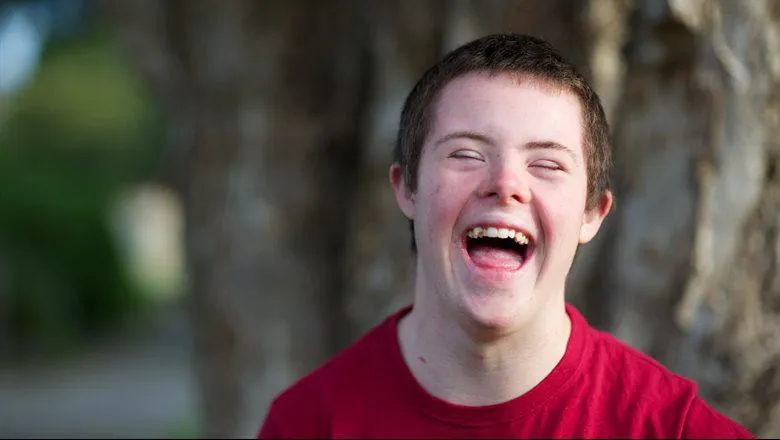26 March 2020
Looking for Down syndrome treatment: an inspiring scientific project which deserves EU's political will
To honour World Down Syndrome Day on March 21st, several researchers from universities across Europe working on Down syndrome were supposed to present their work at the European Parliament. This event has been cancelled due to Covid-19. Here they summarise what would have been their speeches.

“Medical research has already progressed a lot: in 50 years, life expectancy of persons with Down syndrome has strikingly increased. Medical Doctors know better how to treat health-related complications such as cardiac defects and how to stimulate intellectual abilities. Consequently, persons with Down syndrome often enjoy a more independent and fulfilling life than in the past.
“However, as researchers we know that it is scientifically possible to go further: we can find a treatment for persons with Down syndrome. What does this mean exactly? A person with Down syndrome primarily has an intellectual disability. This is the most significant consequence of the third chromosome 21. Indeed, this intellectual disability prevents the person from being fully independent and fully herself/himself. Nowadays, it is scientifically feasible to successfully correct mental deficiency. This can be done either by focusing specifically on certain genes involved in cognition that are present in chromosome 21, by silencing the third chromosome 21 or by intervening on some particular neurotransmitters. The aim of therapeutic research into Down syndrome is essentially to develop a treatment to improve and even normalize mental function in persons with Down syndrome.
“It is a realistic goal. Many research projects focus on inhibiting the gene and enzyme DYRK1A, the overproduction of which is partly responsible for the intellectual disability of persons with Down syndrome. The inhibition of DYRK1A could reduce the intellectual disability.
“Other projects are conducted by European teams. One of us recently published about the toxic effect of the gas H2S, which is overproduced in persons with Down syndrome and is poisoning their cells. Blocking H2S overproduction could restore the cognitive ability.
“Intellectual disability is the most obvious challenge faced by persons with Down syndrome.
“Comorbidities which can occur and need to be treated should also be addressed. Indeed, some cancers are over-expressed whereas other cancers are under-expressed, such as breast cancer. Discovering why women with Down syndrome are more unlikely to develop breast cancer could open the door to therapeutic strategies against cancer.
“Persons with Down syndrome are more likely however to express Alzheimer’s disease, and at an earlier age than the general population. Why? Because some genes responsible for Alzheimer’s disease are located on chromosome 21. European researchers, structured as a consortium (Horizon 21), are working on how to treat Alzheimer’s disease in persons with Down syndrome. The results could benefit us all.
“Because crossed research will benefit many patients,
“Because Down syndrome is the most common intellectual disability (1 conception in 700),
“Because restoring damaged intellectual abilities is a priority which will enable persons to be fully independent,
“Because finding treatments is scientifically feasible,
“Because our research projects deserve funding, better coordination, political impetus and promotion,
“For all these reasons, we ask the European Union – after the Covid-19 health crisis – to make Down syndrome therapeutic research a top priority in the next five years.”
Csaba SZABO (from Hungary, working at the University of Fribourg), Yann HERAULT (France, Institute of Genetics and Molecular and Cellular Biology), Andre STRYDOM (UK, King’s College), Mara DIERSSEN (Spain, Centre for Genomic Regulation), André MEGARBANE (Lebanon/France, Jérôme Lejeune Institut), Peter DE DEYN (The Netherlands, University Medical Center Groningen), Juan FORTEA (Spain, Hospital de la Santa Creu i Sant Pau), Marie-Claude POTIER (France, CNRS, Brain Institute), Laurent MEIJER (France, Perha Pharmaceuticals), Anne-Sophie REBILLAT (France, Jérôme Lejeune Institut), Barbara BARDONI (from Italy and France, INSERM), Mária ŠUSTROVA (Slovakia, Slovak Medical University)
This has also been published in:
- Le Figaro (France)
- La Libre Belgique (Belgium)
- La Stampa (Italy)
- ngs24.pl (Poland)
